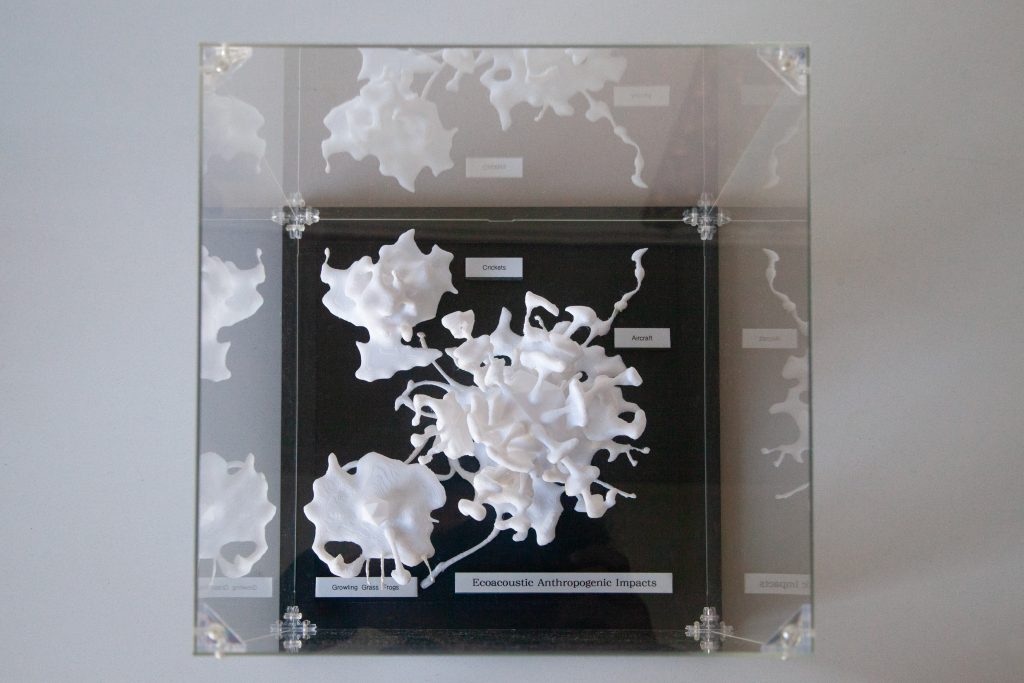Critical Ecological Representations: Object-Oriented Metaphorism as Design Praxis
Doctoral Thesis

Download thesis from RMIT Research Repository: https://research-repository.rmit.edu.au/articles/thesis/Critical_Ecological_Representations_Object-Oriented_Metaphorism_as_Design_Practice/30205840?file=58878769
Also available for download via ResearchGate: https://www.researchgate.net/publication/396709989_Critical_Ecological_Representations_Object-Oriented_Metaphorism_as_Design_Praxis
Abstract: In the context of accelerating global crises and technological advancements, this research investigates applied approaches for the more-than-human design paradigm in order to orient that hopeful design ideology to become cogent concepts which decentre the human object of design research and practice. My approach to this research, and to design praxis, has developed from extended practice in communication and interaction design disciplines. This past practice establishes my examination of philosophic ideas for design through a system of processes—of mappings, of experimentation and making—from which reflection and insights manifest. My design experiences across graphics, 3D, motion, and programming technologies, coupled with a personal passion for Nature, oriented the research context around the relations between humans, technology, and Nature—particularly urban Nature. Therefore, the research within that context is a rationalist, design-led examination of Speculative Realist (SR) ideas for opportunities to decentre the human object and to engage with object–object relations, upon which it subsequently expounds through reflection. The rationalisation and process-driven examination of this research’s philosophic ideas leads it to develop and articulate an Object-Oriented Metaphorism design methodology, reasoned through ideas which it gathers under the heading of Speculative Realist design theory.
Object-Oriented Metaphorism situates a design praxis that is both robust through research and speculative through imagination, and which enables the examination of contexts from multiple object viewpoints in order to generate artefacts which stand in for, or between, object realities. These object-oriented viewpoints can be unveiled through design processes that incorporate imagination, collaboration, and multidisciplinary expertise. This research contributes designerly concepts for creative practitioners seeking a reasoned approach to implement more-than-human concepts in design contexts, as it is founded on Speculative Realist ideas which account for nonhuman spatiotemporal scales, for asymmetry in object–object relations, and for the essential and nonessential aspects of objects—including broader unified contexts. The development of object viewpoints is necessarily enhanced by art-theory concepts of theatricality and absorptivity, which help rationalise differences of perception and of experiences of objects, as well as helping convey the reasoning of myriad design decisions. The research suggests, and the writing presented here provides evidence, that the many and varied processes of creating metaphors—as required by the practices of Object-Oriented Metaphorism—are more essential to knowledge generation than the resulting artefacts.
Supporting that vital realisation that knowledge is generated through the processes of Object-Oriented Metaphorism are the various design projects which helped clarify my interpretations of abstract ideas. Helical iterations of making and reflecting suggested further projects to deepen knowledge, as well as enabling me to write comprehensively on the translated ideas. Early practice research projects interrogated concepts of essence formation between me and objects, between idea and physicality, and thereby established the asymmetry of object relationships. As such, the resulting artefacts are metaphoric, existing between philosophic ideas and myself, between my interpretations and access to the examined contexts—the presented artefacts are objects of philosophy and objects of epistemology. Building upon these early projects and the resulting knowledge are three core projects which present the major milestones of the research. Project 1, Habitat Robots, implemented more-than-human entanglements, including the abstraction of data, which identified the need to examine how metaphors for designing data representations emerge. Project 2, Soil Protector Robot Series, interrogates the emergent SR Design ideas in praxis in order to manifest object-oriented metaphors, and to further develop the presented design philosophy and methodology. These projects foreshadow a Speculative Realist praxis of design, which developed Project 3, Ecoacoustic Sound Sculptures. Ecoacoustic Sound Sculptures is a practice-led enquiry into the nature of data, and the implications of technologies which mediate our understanding of Nature. The Ecoacoustic Sound Sculptures were co-created serendipitously with technology, allowing the creative practitioner to develop new understandings of Nature and the limits of technologies, framed through philosophic ideas. The aims of Ecoacoustic Sound Sculptures are to further evolve an object-oriented metaphoric design praxis and to provoke human observers—both experts and non-experts in the field—to break from presuppositions and reflexive perceptions of natural lifeworlds, and of the natures of data and technologies which can stand in for actuality.
The research’s object-oriented metaphoric design praxis uses rationalist design processes to examine the conflicting priorities within flat ontological approaches, develops processes to determine boundaries of complex contexts, and explicates our inescapable anthropometaphorism—a term for the generalised human access to reality—and from that definition the research extrapolates the term Object-Oriented Metaphorism. The findings and insights from this research are of consequence in offering a reasoned methodology for evaluating manifestations of object lifeworlds, whether they be natural or technological or fantastical, and thereby this research offers an applied, cogent approach for the more-than-human design paradigm. The research has revealed that Object-Oriented Metaphorism, as praxis, creates a practice of proliferation and of joy as enquiries span the poetic and the scientific, the digital and the sensorial, while facilitating the philosophic reasoning to contend with emergent paradoxes in more-than-human, object-oriented thinking.
Thesis Keywords: sensorial design; Speculative Realism; data abstraction; Object-Oriented Ontology; Quadruple Object; philosophy of design; more-than-human; environmental robots; design praxis; ontological design
